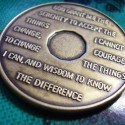Hit the books not the bottle: Reduce binge drinking
Despite the fact that more than 40 percent of college students are binge drinkers, do not let end-of-the-year stress drive you to hit the bottle instead of the books!
Binge drinking is defined by the National Institute of Alcohol Abuse and Alcoholism as the consumption of large quantities of alcohol in about two hours, leading to a blood alcohol concentration of 0.08 grams percent or more. For men, having five or more drinks in one sitting is considered binge drinking, while for women, having four drinks constitutes binge drinking. Men, however, are twice as likely to binge drink as women.
Binge drinking’s effect on academics
Especially near final exam time, students should carefully consider the vast academic consequences of drinking and binge drinking. As a central nervous system depressant, alcohol is associated with feelings of drowsiness or fatigue, as well as impaired brain function and judgment.
Alcohol works in the adult brain by damaging neuronal dendrites in the cerebellum, which is associated with motor coordination and learning. The damaged dendrites are less able to carry messages to other neurons. However, alcohol does not actually kill neurons, as is commonly thought. Permanent brain damage can be caused by years of heavy drinking, though.
Research documents some of alcohol’s negative effects on college students. Madd.org reports that 25 percent of college students who drink report that alcohol has negative academic effects.
One recent study indicates that each imbibed alcoholic beverage is associated with 15 minutes less of studying per day. Another study found that each alcoholic beverage a student drinks increases their likelihood of missing class by eight percent and increases their likelihood of getting behind in school by five percent. This, in turn, is associated with a lower GPA.
Other dangers of alcohol for college students
Alcohol is widely associated with injury and death. Over two million students drive under the influence of alcohol each year. Partially because of this, 1,700 college students die annually from alcohol-related injuries, while almost 600,000 students are injured unintentionally while under the influence of alcohol. Nearly 700,000 assaults annually are caused by a drunk college student.
Alcohol is also associated with other problems, such as the over 97,000 students who are victims of alcohol-related sexual assault or rape each year. About 400,000 students have unprotected sex while drunk and about one quarter of those students claim to have been too drunk to remember consenting to have sex.
Drinking at UMBC
Last fall, UMBC president Hrabowski refused to support the Amethyst Initiative, which called for elected officials to debate lowering the national drinking age. The initiative was created because a group of individuals believed that the 21-year-old drinking limit was causing dangerous binge drinking, especially on college and university campuses.
However, based on data produced by Mothers Against Drunk Driving, The Retriever Weekly reported in September 2008 that lowering the Maryland drinking age would actually increase student fatalities, especially those related to drinking and driving.
In the same article, UMBC Vice President of Student Affiairs Nancy Young said the UMBC drinking rate is between 33 and 37 percent.
source: Retriever Weekly
